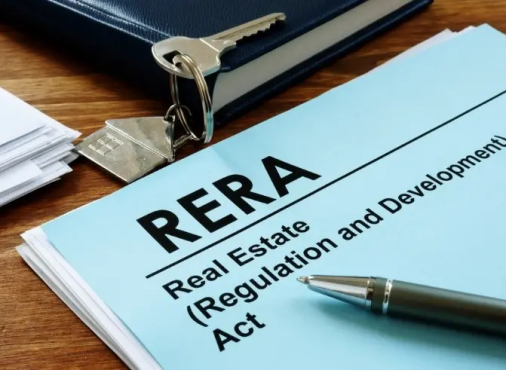Are you stressed about your children’s future? While investing in gold and taking loans sound like good options, have you ever considered investing in second homes?
Buying a second home has emerged as a good option for those who want financial growth for their family. Rustomjee is a key player in creating family-focused homes, offering a range of residential options that provide a quality of life.
This blog explores why buying a second home is a wise choice for your children’s future, and how you can make it part of your long-term investment strategy.
Why Second Homes Make Excellent Long-Term Investments for Families
Second homes provide more than just a place to relax. They represent a significant opportunity for long-term financial growth and stability. Here’s why they make such great investments for families when they buy second home purchase:
Key Takeaways:
- Appreciation over Time: Real estate, unlike stocks, tends to appreciate over time, building long-term value for the family.
- Inflation Protection: Property acts as a hedge against inflation, unlike other financial instruments like bonds or savings accounts, which may lose value over time.
- Rental Income: When not in use, second homes can generate passive rental income, allowing you to support the cost of the property while your children grow.
- Strategic Locations: Properties near educational institutions or emerging professional hubs can enhance your children’s academic and career prospects.
- Family Gathering Place: Second homes become the perfect setting for family gatherings, creating lifelong memories in a secure environment.
- Tax Benefits: Transferring property to your children can offer tax advantages, helping to reduce inheritance tax burdens.
Read Also: The Benefits of Owning a Second Home: Financial and Lifestyle Perks
Strategic Locations When Buying Second Homes for Children
The location for buying a second home can influence its value and utility for your children’s future. When purchasing a second property, consider areas that offer lifestyle benefits and long-term growth potential.
| Location | Advantages |
| Educational Districts | Proximity to top universities, high rental demand, and long-term value. |
| Emerging Professional Hubs | Investment in growing areas with career opportunities for children. |
| Beachfront/Leisure Properties | Ideal for relaxation and growth, with high lifestyle appeal. |
| Suburban Communities | Family-friendly with excellent infrastructure and future growth potential. |
| International Properties | Global exposure and opportunities for children to expand their careers. |
Financial Planning for a Second Home Purchase
Buying a second home requires careful financial planning to ensure it complements your long-term goals. Here are key considerations:
Setting a Realistic Budget
Calculate the property’s purchase cost, including the down payment, closing fees, and stamp duty. Additionally, estimate the recurring costs, including property taxes, utilities, and maintenance.
Financing Options
Home loans can be a good option, but selecting a plan that aligns with your children’s milestones is important, such as paying off the loan before they start their university education or before you retire is important.
Taxation and Inheritance Planning
Understand the tax implications of owning a second home, particularly capital gains and property taxes.
Consider how property ownership will be transferred to your children. Consult with a tax advisor to optimise tax benefits and inheritance planning.
Creating a Maintenance Fund
Setting aside a fund for ongoing property maintenance and repairs is key to preserving the property’s value and ensuring it remains habitable for future generations.
Rental Income Management
If the property will be rented out, plan for property management through a trusted local agent or by managing it yourself. Rental income should be factored into your overall financial plan.
Read Also: Should You Buy a Second Home for Leisure or Investment?
Property Types That Make Excellent Family Investments
Certain types of properties work better than others when it comes to securing your children’s future.
Apartments in Integrated Townships
These properties offer a ready-to-move-in, hassle-free investment option with amenities like schools, hospitals, and parks. Integrated townships in areas like Rustomjee Urbania in Thane provide excellent growth potential.
Suburban Homes with Community Amenities
Spacious homes in suburban locations with easy access to schools and public transport, like those in Rustomjee Seasons, offer convenience and a sense of community.
Educational District Properties
Properties located near top universities and colleges, like in Powai, are great for children’s future academic pursuits and are in high demand for rental income.
Villa Plots for Custom Building
Villa plots in areas like Rustomjee Belle Vie in Kasara offer the flexibility to design your dream home tailored to your family’s future needs.
Multi-family Units
Multi-family units can be an excellent investment option for families with multiple children. These properties allow each child to have their own space or can be rented out for additional income.
Legal and Ownership Considerations When Buying for Children
Ownership structures are critical when buying property for children. Here are some important considerations:
Ownership Structures
Consider placing the property in a trust for tax advantages and to protect the property for future generations. This approach helps manage the inheritance process effectively.
Joint ownership with your children can also be a viable option, ensuring they inherit the property without legal complications.
Age Considerations
Transferring property ownership may involve legal complexities, particularly if your children are minors. Consult with a legal expert to understand the implications of ownership transfer.
Tax Implications
Different ownership structures offer tax benefits, such as reduced inheritance or capital gains tax. Consult with a financial advisor to understand the best approach for your situation.
NRIs Investing in India
NRIs looking to invest in property in India for their children must navigate the rules set by the Reserve Bank of India and the Foreign Exchange Management Act (FEMA). The legal framework ensures the investment process is smooth for non-resident Indians.
Case Studies: Families Who Successfully Invested in Second Homes
- Parents Near University Districts: A family invested in a second home near a prestigious university in Mumbai, allowing their children to study and live comfortably. The property generated rental income when the children were away at school.
- Retirement and Children’s Future: Another family purchased a villa in Lonavala, which doubled as a second home and a retirement property. It served as a family vacation spot while increasing in value.
- International Investment: A global family invested in a property in Dubai, securing a base for their children’s future while providing them a global perspective and opportunities in international markets.
- Multi-Generational Investment: A family bought a multi-family unit in Thane, allowing each generation to have their own space while providing rental income.
The Emotional Value: Creating Family Heritage Through Property
A second home is not just a financial asset but an emotional legacy. Here’s how it benefits families:
- Building Traditions: A second home creates a space where families can gather, celebrate milestones, and form lifelong traditions. It serves as a place of refuge and joy for generations.
- Providing Future Security: Offering your children a property gives them a sense of security, knowing they have a home that can be passed down, adding emotional value beyond the financial returns.
- Teaching Financial Responsibility: Managing a second home teaches children valuable lessons in responsibility, budgeting, and long-term planning.
Conclusion
A second home purchase for your children is a rewarding decision that blends financial growth with emotional value. Careful planning will ensure that the property serves your family’s long-term needs, whether you’re seeking a vacation retreat or a steady income stream.
Rustomjee offers a variety of properties that can help secure your family’s future. Explore Rustomjee Urbania in Thane, an integrated township designed for family living, and invest in your family’s tomorrow today.
FAQs
-
At what age should I start planning a property investment for my children’s future?
It’s ideal to start early, even when your children are young, to ensure you can take advantage of long-term appreciation.
-
What locations in India offer the best long-term appreciation for family-focused properties?
Locations like Mumbai, Pune, and Bengaluru, as well as emerging areas like Thane and Virar, offer great potential for long-term growth.
-
How can I balance current family needs with future investment potential when buying a second home?
Choosing a property that offers both personal use and rental income, such as in an educational district or near a professional hub, balances current and future needs.
-
What legal structures best protect my children’s interests in a property investment?
Trusts, joint ownership, and other legal frameworks help ensure the property is securely passed down and offer tax benefits.
-
Should I involve my children in the property selection and management process?
Involving your children, especially as they grow older, helps them understand the importance of property management and can teach valuable financial lessons.
-
How does buying a second home compare to other investment strategies for children’s education?
A second home offers long-term financial security, tangible asset growth, and potential rental income, which stocks or bonds cannot provide for educational needs.







